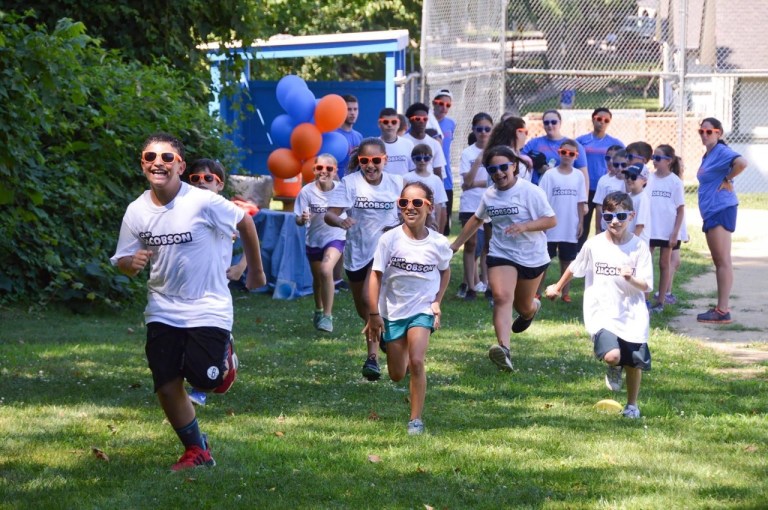
After 14 years of operation, Brookville has ordered the Sid Jacobson JCC to stop all operations on its village property because of zoning law violations, including Camp Jacobson, which hosted 440 campers this summer.
The East Hills-based Jewish community center purchased the 15-acre property in Brookville in 2008. Since then, thousands of kids have attended their programs.
Previously, the center also ran the Bernice Jacobson Day School & Camp in Brookville, which normally served about 30 children at a time. When the village refused to let them increase the classroom space for 4-year-olds, however, the center transferred the program back to the Sid Jacobson JCC.
The JCC permits that were required for renovations were rejected in 2021 after a seven-year legal fight with the village. During this process, the village found that its zoning laws did not allow for the summer camp and daycare center to operate and that the JCC’s programs do not qualify as a religious or educational use entitled to deferential zoning treatment.
About a week after their 2022 summer camp ended, the village informed the center that it had filed a motion in State Supreme Court to force them to stop using the property.
Officials from the JCC explained the situation to parents in an email on Sept. 13. This change of events, they said, has left them “confounded and deeply disturbed.”
Ross M. Wallenstein, a spokesperson for the Sid Jacobson JCC, said in a statement to Blank Slate Media that the center will explore its options.
“It is unfortunate that, due to circumstances beyond our control, we will not be able to operate Camp Jacobson in 2023 after 14 wonderful years on the property. We maintain our assertion that the camp should be allowed to continue, but must follow the dictates of the courts,” he said. “Between now and the summer, we will explore our options on behalf of thousands of children and area families who experienced the wonderment of Bernice Jacobson Day School and Camp and the hundreds of young adults, teachers, area parents and camp professionals who made our staff so very special.”
Efforts to reach the Village of Brookville for comments were unavailing.
According to legal records, the conflict between Brookville and the JCC began over potential renovations.
The JCC submitted a building permit application in March 2014. They sought to expand the facilities on their property and to widen the existing driveway. After it was denied, they were instructed to apply for a conditional use zoning permit, which they did in May 2014.
The ZBA turned the JCC’s application down in January 2017 without issuing a decision. The JCC filed an instant appeal proceeding in February 2017. (A state or municipal agency’s judgment may be appealed to the state courts through an Article 78 proceeding.)
The ZBA released its verdict in May 2017 and said that the proposed use would be detrimental to the area. They added the applicable zoning rules did not permit it as a conditional use.
To respond to the ZBA’s written decision, the JCC submitted an amended CPLR Article 78 petition in August 2017. The State Supreme Court rejected the changed petition and effectively dismissed the proceeding by decision dated Dec. 11, 2017. The JCC then filed an appeal.
The ZBA found the JCC’s programming did not meet the criteria for deferential zoning treatment.
“Although the JCC is a religious organization,” the court filings said, “the evidence presented to the ZBA supports its determination that the activities and programs offered at the Day School and Camp are standard recreational activities that are offered at any summer camp.”
In addition, the filings say the evidence supports the ZBA’s conclusion that the JCC’s camp program is primarily recreational rather than educational.
“Specifically, the evidence in the record established that the camp is operated under a children’s camp permit issued by the Nassau County Department of Health and the activities offered are predominately athletic and recreational in nature, e.g., sports, swimming, horseback riding and diving,” the court filings said. “Further, no evidence was presented to demonstrate that the staff employed by the camp are qualified to instruct in subjects which are part of a regular school curriculum.”
It said testimony from neighboring property owners supports the ZBA’s findings that the JCC’s intended usage would be detrimental to the area and its residents.







The Roberts family started the Robin Hood Country Day School in 1957 at this location. They ‘skirted’ the then existing zoning laws prohibiting a camp by calling it a ‘school’, but it was anything but. To perpetuate their assertion that this was indeed a school, they ran a very small nursery school from September – June, but the main money-maker was really the summer camp program. In its heyday, the Robin Hood Country Day School summer program was a cash-cow, with the summer (camp) enrollment of approximately 1,000 campers. In Robin Hood’s early years, the town & residents repeatedly maintained that Robin Hood was a summer camp, dragging the Roberts to court multiple times. Records of many of the court proceeding are readily available on line, as well as multiple newspaper articles with court injunctions against Robin Hood. Ultimately, after multiple court battles and counter lawsuits, the Roberts family prevailed and the Country Day School stayed open. Not sure why when Sid Jacobson JCC purchased Robin Hood why didn’t keep the name Robin Hood Country Day School (and continue to run the nursery program) but instead opted to change the name to Camp Jacobson, openly flaunting the fact that it was indeed just a camp. If the residents & the town were looking to rid themselves of this entity, the Sid Jacobson JCC agave them all of the ammunition they needed!